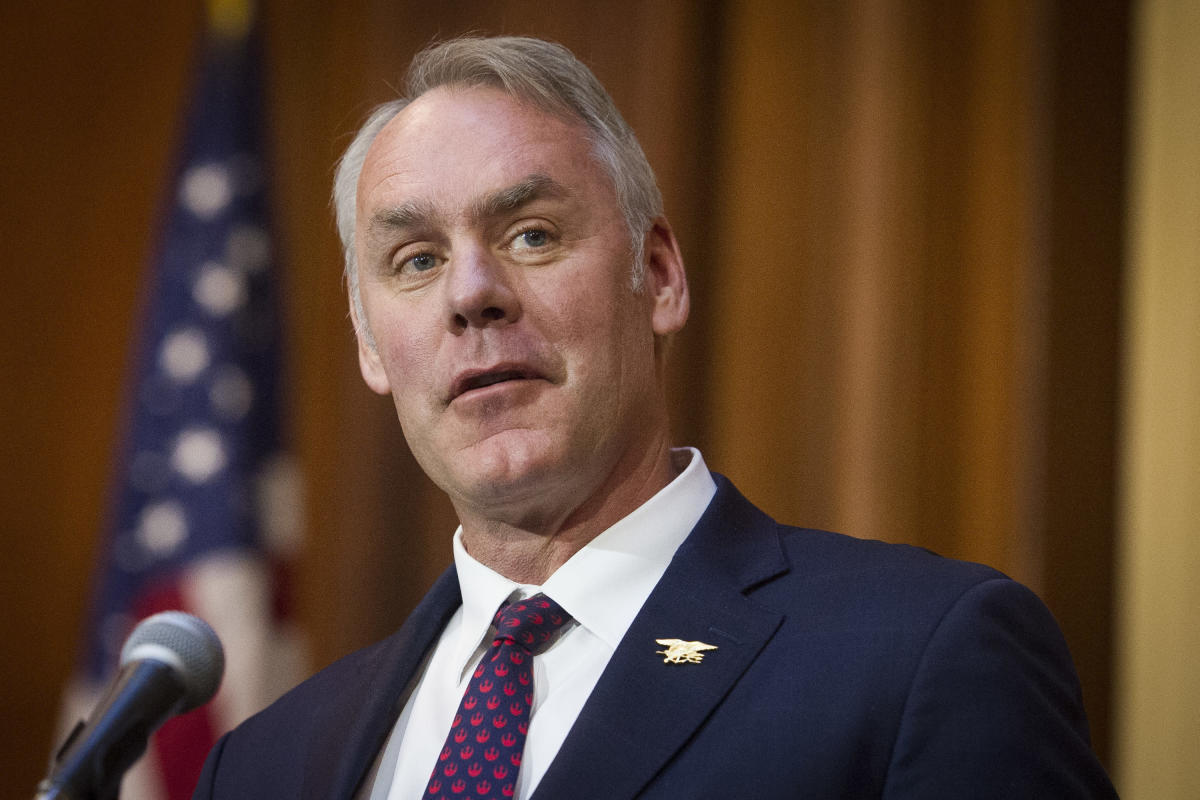
BILLINGS, Mont. (AP) — Former U.S. Interior Secretary Ryan Zinke misused his position to advance a development project in his Montana hometown and lied to an agency ethics official about his involvement, according to a report from federal investigators released Wednesday.
The investigation by the Interior Department’s inspector general found that Zinke continued working with a foundation on the commercial project in the community of Whitefish, Montana even after he committed upon taking office to breaking ties with the foundation.
The report also said that Zinke gave incorrect and incomplete information to an Interior Department ethics official who confronted him over his involvement and that Zinke directed his staff to assist him with the project in a misuse of his position.
The Great Northern Veterans Peace Park Foundation was established by Zinke and others in 2007. Zinke and his wife were in negotiations with private developers for the use of foundation land for a commercial development project that included a microbrewery.
Related video: Ethics Office says U.S. Rep. Doug Lamborn may have broken law
Zinke is a candidate in the June Republican primary for an open Montana Congressional seat, a position he held prior to joining Trump’s cabinet.
Zinke’s campaign called the report “a political hit job” and said his family’s involvement in the foundation had led to the restoration of land that was made into a park where children can sled.
Investigators referred the matter to the Department of Justice for potential prosecution but it declined to pursue a criminal case, according to the report.
The investigation into the land deal was one of numerous probes of Zinke that began when he was in Trump’s cabinet.
In another case, investigators found that he violated a policy that prohibits non-government employees from riding in government cars after his wife traveled with him, but he said ethics officials approved it. Zinke was cleared of wrongdoing following a complaint that he redrew the boundaries of a national monument in Utah to benefit a state lawmaker and political ally.
During almost two years overseeing the agency responsible for managing 781,000 square miles (2 million square kilometers) of public lands, Zinke’s broad rollbacks of restrictions on oil and gas drilling were cheered by industry.
But they brought a scathing backlash from environmental groups and Democratic lawmakers who accused him of putting corporate profits ahead of preservation.
When he resigned, Zinke said it was because of politically motivated attacks that had created a distraction from his duties.
Zinke and his wife, Lola, declined interview requests from federal investigators who were looking into the land deal.
But emails and text messages from others who were involved show Zinke continued to communicate with developers even after resigning from the foundation in March 2017, when he was confirmed as secretary, according to investigators.
“The communications showed that Secretary Zinke repeatedly communicated with the developers of the 95 Karrow project and negotiated with them on behalf of the foundation by discussing the use of foundation property for the project, specific design aspects of the project, and the development of a microbrewery,” investigators wrote.




